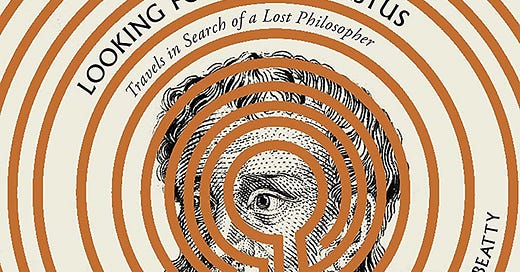Theophrastus is known to most contemporary philosophers, if at all, by an idea attributed to him in the Magna Moralia, revived by Elizabeth Anscombe in her monograph, Intention. The idea is that, when you don’t know what you’re doing, your mistake may be one of skill or performance, not—as with faulty speculation—one of judgement.
Laura Beatty’s Looking for Theophrastus is the record of a personal voyage to discover who Theophrastus really was, retracing the conjectured steps of his collaboration with Aristotle at the birth of natural history. Beatty knows what she is doing, and it is not affectless conjecture:
It was a significant moment when Theophrastus, so young, looked for the first time through the keyhole of those blue eyes and found himself falling, with the great spaces of Aristotle’s mind opening out before him. It must have been dizzying.
According to ancient sources, Theophrastus was “naturally of erotic bent”—the sort of man who might experience love at first sight. “They co…
Keep reading with a 7-day free trial
Subscribe to Under the Net to keep reading this post and get 7 days of free access to the full post archives.



